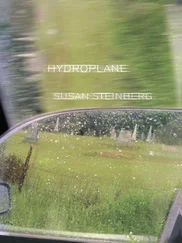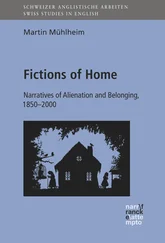Barbara is in the next room.
She is being fed by two nurses. One spoons the soupy food onto Barbara's tongue, the other promptly pushes between Barbara's teeth the canula that carries what Barbara cannot swallow down into the canister where what is suctioned out of Barbara's mouth is stored until someone must come dump the contents into the bedroom toilet so that the procedure might be continued without spillover or mechanical breakdown.
Barbara will be fed, in this manner, all night, which means, as a rule — all night, that is — until about four in the morning, at which time Barbara will be prepared for bed, and then finally laid down onto it at about six-thirty. She will be gotten up from bed and positioned back into her chair at about nine-thirty, whereupon the feeding will begin again throughout the day and the night again, this in the care of three shifts of a pair of nurses who come to us as Mercy Persons — until about four in the morning of 31 January — if, in fact, there is going to be a 31 January this year.
I don't know.
I turn sixty in February.
I mention these matters not to press you with the force of conditions now in sway in Barbara's life but instead to create the context for the one literary memoir — if this is what it might be claimed this recollection of mine is — I am ever likely to impart to print.
It concerns the critic Frank Lentricchia and the novelist Cynthia Ozick.
It concerns eating.
It concerns an item that belonged to Barbara but which I took from Barbara — actually, from the chifforobe in the room Barbara now sits in now being fed in as I now sit writing in this one — the evening last July that Ozick and Lentricchia asked me to come out to dinner with them.
It was, the item, vintage spectacles that pinch the nose to keep themselves stationed at their post and that have a ribbon that, looped through an eyelet formed from the frame, goes over the head and takes purchase around the neck and hangs down.
Pince-nez, yes?
Barbara never wore them.
The glass in them was plain glass.
I had picked up this novelty for Barbara from some sort of fashion emporium back when we were first setting up housekeeping together.
The pince-nez were like so many of the things I was then snatching from everywhere for Barbara — notions I had, frenzied notions, of ornamenting her, of delineating her, in her beauty.
Barbara was a very beautiful woman.
Barbara is still, inexpressibly, incredibly — reduced to a depletion more severe than anything I would have imagined possible without death present in complete dominion — a very beautiful woman. You can see this, Barbara's authority in this category, registering in the styles of approach made to her by the women who come to nurse Barbara — a sort of recognition, I think it is, a sort of satisfied acknowledgement of the insult nature reserves — justly! — for the very beautiful.
Barbara is regnant in there in our bedroom with two such nurses right now. They feed her, or struggle to feed her, as Barbara, for her part, struggles to swallow little sips of what was yesterday cooked and pureed for her, everybody in there, none more blindingly than Barbara herself, getting a good look at what most of us never see: the work that can be done to the body by amyotrophic lateral sclerosis.
Lou Gehrig's disease.
But what I want to tell you about is about another experience in eating and about other persons — and about, please remember, the pince-nez.
Which last I had taken from the top drawer of Barbara's chifforobe in order that I might feel I was in prospect of holding my own — as a full-fledged participant — in the company of Lentricchia and Ozick the night of the dinner I am remarking.
I took them with me, the pince-nez, for just that reason — or for no reason that I can honorably say.
I don't know.
Say that I had been in all day, been in for days, had not been out of the house — not at night, anyway — for weeks and weeks — and had certainly not been out for anything social in months, months, months.
Lentricchia and Ozick, Ozick and Lentricchia.
They — one or the other of them — phoned, said come out to dinner with us, said come meet us in an hour at The Grand Ticino, said come look for it just north of Bleecker on Thompson.
I said yes, yes, oh yes, hung up the phone, went with tears in my eyes — it's crazy — to the bedroom, to the chifforobe, took out the pince-nez, got my shoe trapped under one of the canulas or catheters or electric cords everywhere underfoot, got the shoe loose, went to the bookshelves, took down Ozick's Bloodshed , took down Lentricchia's Ariel and the Police , went to the kitchen, made out a note for the nurses then on duty and for those to come on at ten, said I'd be back no later than eleven, added the telephone number where I could be reached, and went, left, fled, took myself out into the street in the temper of one released.
Now to the little joke in this.
What I know I called a memoir but can now see will never accumulate itself into anything so grand, and God knows into nothing anywhere on speaking terms with something traveling under papers as a literary one.
It's just a bit.
I can tell it to you, the whole bit, in no time flat.
They were late.
I sat there being exasperated with them.
Why were they late?
Wasn't I on time? What right did they have to be late when there I was — right when they said I should be — right on fucking time? And what right did they have to make it up between them that we, that the three of us, would come eat at The Grand Ticino when — fuck, fuck! — doors away, also just north on Thompson off Bleecker, was Porto Bello — where with Bloom, with Donoghue, where with Ozick and Lentricchia — where all the years with Barbara, goddamn it! — I had had such good times, such happinesses — releases to, not releases from.
I tried thinking of topics.
Then I was glad of it, glad for it — glad the dirty fucking rats, the bums, were late.
Because I did not have anything to talk with them about — no topics, not a topic — did not have anything to say for myself, did not feel anything in me sufficient in worth to swap for the gift of anyone's time with me — except to hand these people my tears again in thanks again for their thinking again to ask me to come out with them for eats again.
I had one topic.
Barbara.
Barbara dying.
So I sat there being exasperated a little bit, and weeping a little bit, and being pleased with myself for the pince-nez hanging zanily from my neck and for the copy of Bloodshed and for the copy of Ariel and the Police I had thought to pack along with me for no motive I could state to you with any more good sense backing it up than I could summon in defense of myself for my getting myself primped up with the pince-nez.
I thought: Tell them I'd just made up my mind my favorite sentence is Edward Loomis' "Mary Rollins was born in a high white frame house shaded by elms."
I thought: Tell them I am getting ready to make my second-favorite sentence "The icepack has melted, and the American River is running fast."
I thought: Do I tell them it's mine, this sentence — ah, shit, compound sentence! — or tell them instead that all I really did was steal it from where it was scribbled up on some wall somewhere?
I thought: Tell them I've got money in my pocket and I'm going to get bad drunk and then get on a bus, get on any bus, so long as it's going away.
I thought: Tell them I'm pretty damn burnt-up they didn't deal me in when they didn't settle on good old Porto Bello.
I thought: Tell them they're my first- and my second-best friends?
I sat there thinking.
I sat there thinking, sat there waiting, sat there making believe I was actually reading the books I had laid out in my lap when I had pushed back my chair back away from the table when the waiter had come and had put a cup of espresso in front of me and had filled the bread basket with some great-looking bread in it for me and had poured out for me a little dish of olive oil for me, and had, in every ordinary thing the fellow had done for me, in every conventional ministration the waiter had enacted for me, that the man had — the strictness, the covenant with protocol — got the tears to come from me again, carried me into a sort of small weeping again — so that, sure, sure, I guess I could not actually have sat there reading anything even if I had actually been trying to.
Читать дальше











